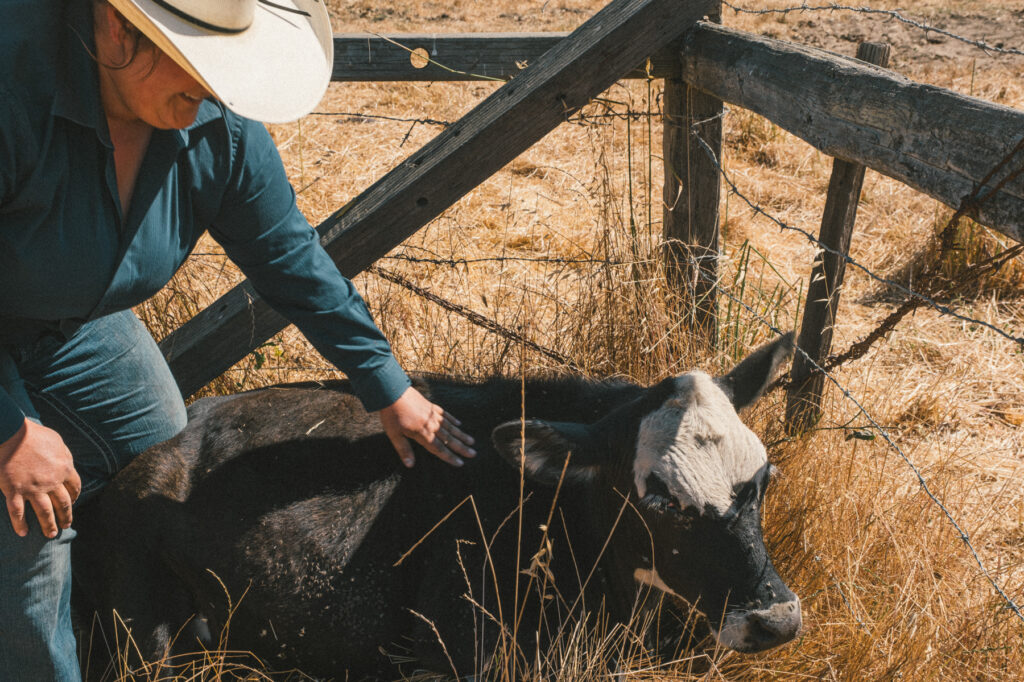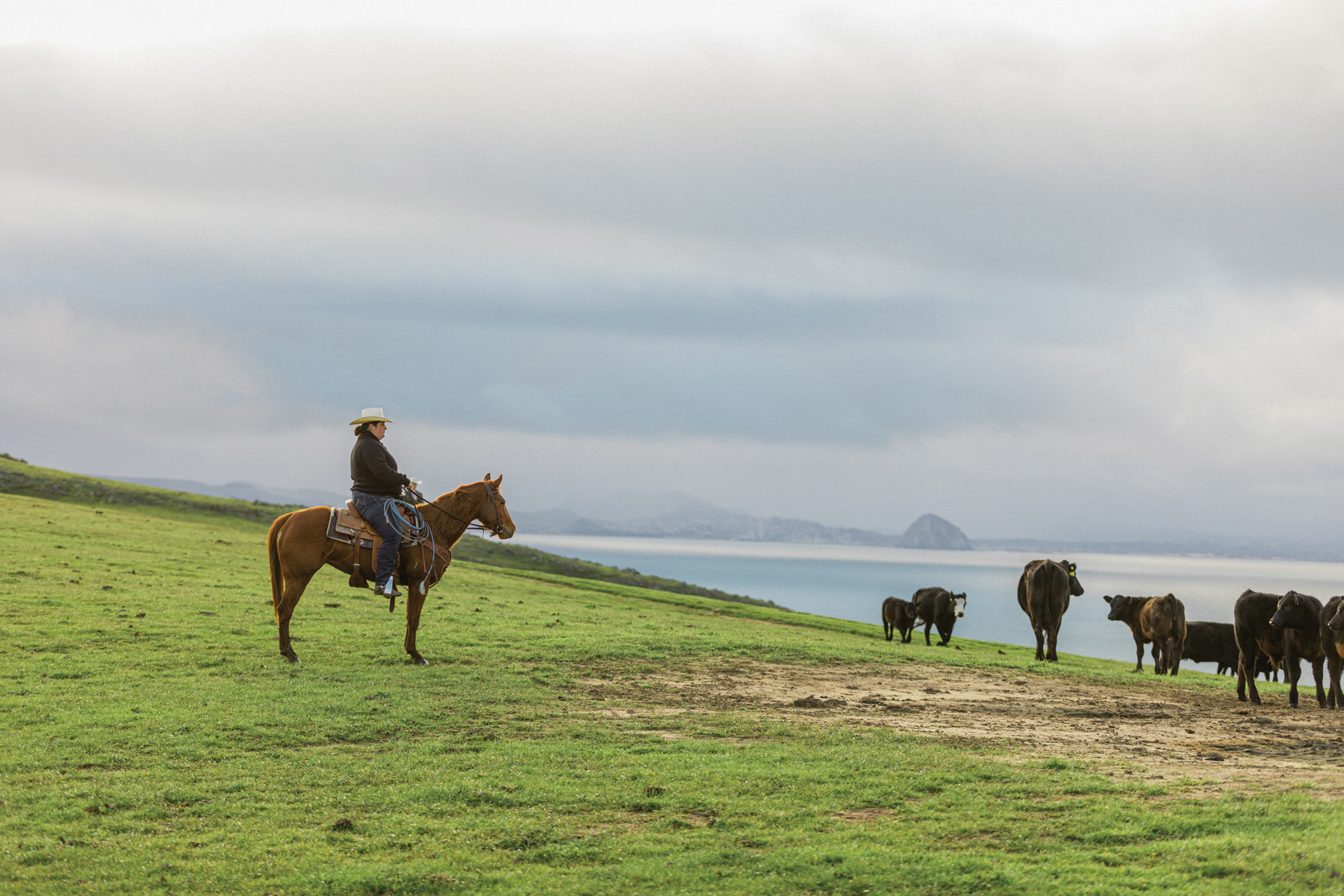
A View from the Top: Molnar Cattle
Story by Jonathan LaFerrara
Photography by Richard Fusillo & Shelby Caitlin Photography
Where else but here on the Central Coast can one find cattle roaming acres of land overlooking the Pacific Ocean, grazing along multimillion-dollar views? The intersection of agriculture and beachfront luxury is a unique place to be, and Fallon Molnar embraces it.
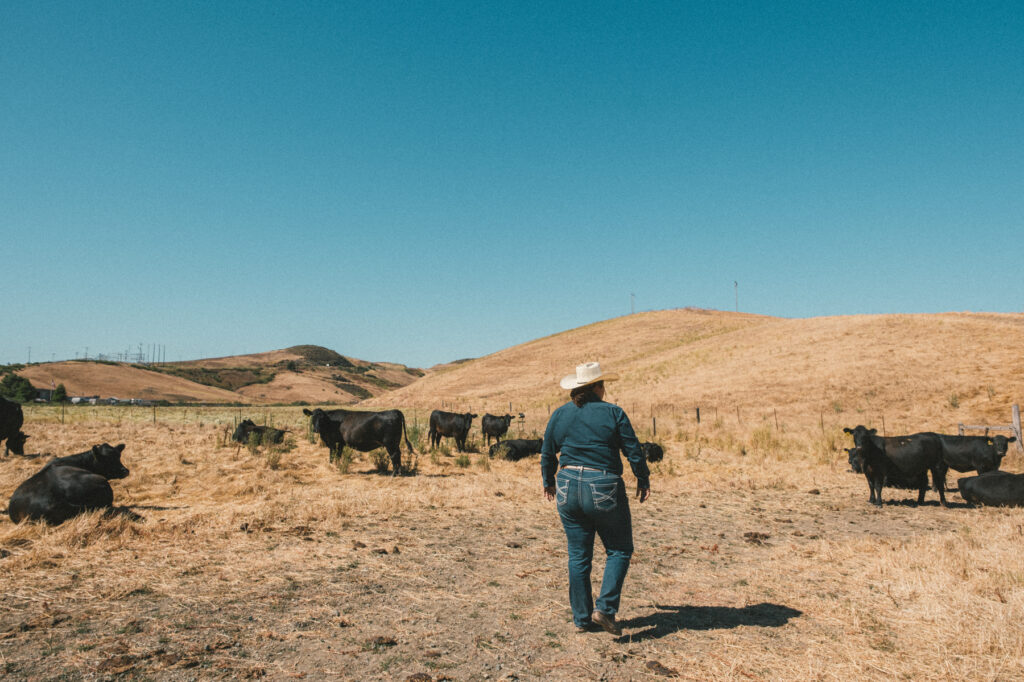
“One of our ranches is just south of the Harmony Headlands State Park hiking trail — there’s a beach on the ranch where the cattle graze. They live well,” says Fallon, as she rides a horse through the property to check in on her family’s cattle raising business Molnar Cattle, based in Cayucos. At just 25 years of age, she serves as the General Manager and co-owns the business with her parents, Patrick and Sherry Molnar, a company that’s been passed down through generations. And now, thanks to Fallon, it is a direct-to-consumer beef business, too.
“Fallon was always immersed in our operation back from when she was a very small child,” says Sherry. “She understands that ranching is not a nine to five job, and it takes perseverance, hard work and a level of toughness that most don’t understand. She knows that as a rancher, we are stewards of the land. Our animals are our livelihood and require top level treatment.”
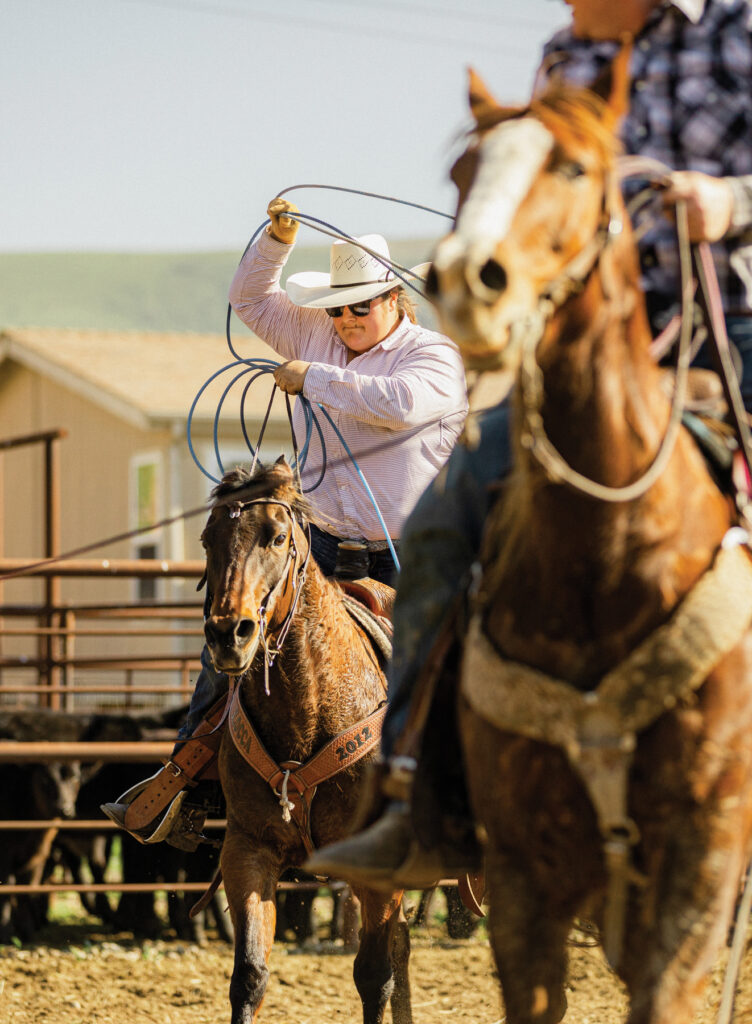
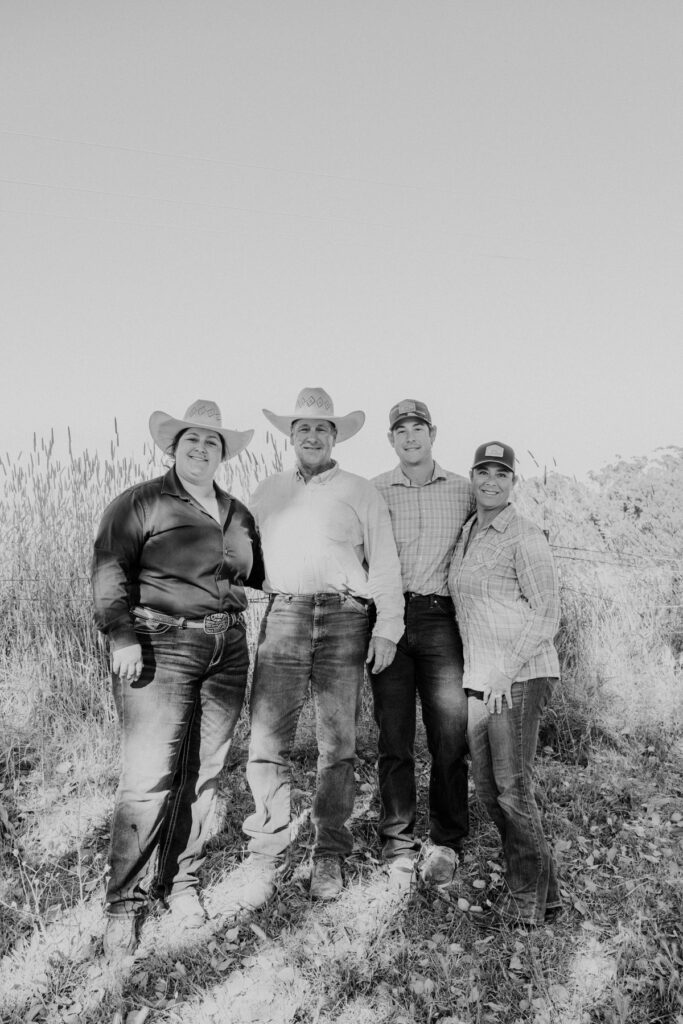
And this life is not easy, especially in 2023. Molnar Cattle’s cow/calf operation, which historically raised calves to be sold to larger meat companies and feedlots, “doesn’t make you money in this day and age,” says Fallon, pointedly. “All of the money goes to the big butchers and processors. They can charge $25 per steak, where they give us $0.62 per pound for the cow. The price is very inflated. Ranchers are the ones raising the animals to feed the world, but we don’t get paid for it.”
The Molnar Cattle operation began thanks to Fallon’s grandfather Ercole Biaggini, who settled in California after immigrating to the U.S. from Switzerland in 1870. A naturally hard worker, he claimed almost all the land around Cayucos and started ranching. “Up until the Great Depression, my grandfather had most of the land you saw from the pier, a couple thousand acres,” describes Fallon. “There were some smaller ranches here and there, but he had a lot of what you could see.”
When the Great Depression hit, Ercole sold much of that land and what was left was 200 acres in South Cayucos. This is the ranch Fallon lives and works on, the last part of her grandfather’s land that’s still in the family. Though real estate developers would pay a handsome price for this land, Fallon plans to keep it in the family. “It’s been here for 150-plus years. I made a promise to my brother and my cousins — we all own the land together — that we’d keep it. We want to keep it in the family since the rest of our grandfather’s land has been sold off,” she explains.
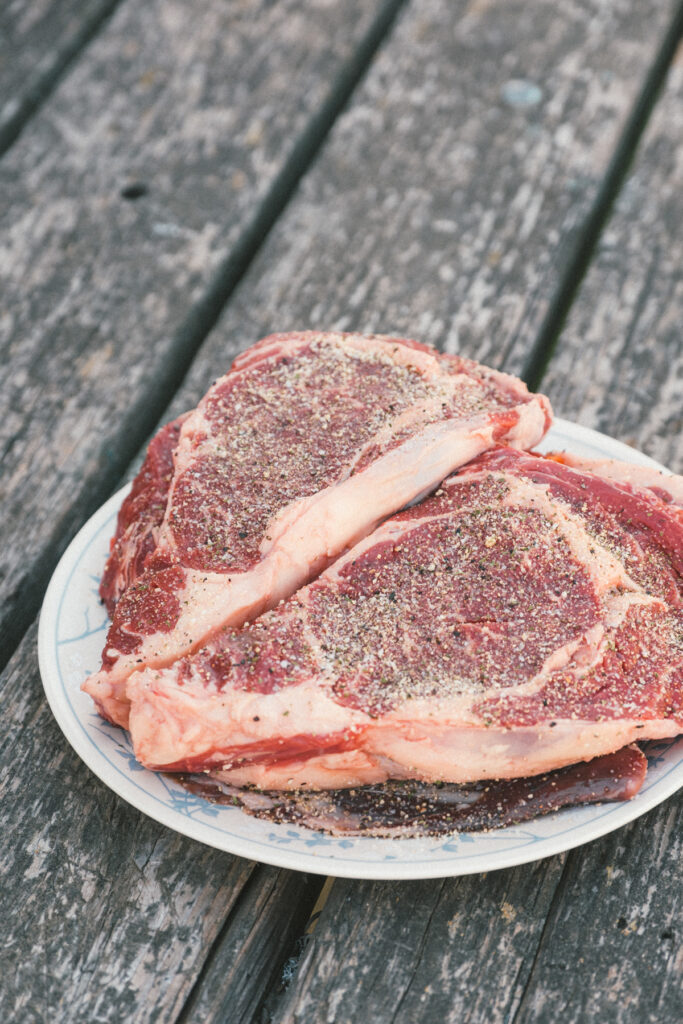

More than a half million ranchers have sold their herd and dissolved their businesses in recent decades. This is the fate Fallon is working to avoid with Molnar Cattle’s new initiative Beef by the Beach, selling the beef they’ve raised direct to customers, with no middlemen. “In 2020, I started vertically integrating, keeping the cattle within our own company, from birth to plate. It’s a huge deal for me to keep everything local and to control the whole operation.”
The grass-fed beef can be purchased at farmers’ markets in Morro Bay and Cayucos, and retail locations including Morro Bay Butcher & Deli and Sunshine Health Foods in Morro Bay, and Caliwala Bakery, Kitchen & Artisan Market in Los Osos. Consumers can also purchase from the Molnar Cattle ecommerce site, or Fallon herself will deliver the meat directly to customers. The beef is naturally, sustainably and humanely raised, and sourced directly from the local ranches that Molnar Cattle operates.
While most beef in the United States is mass produced and cows are grain fed, eating an unnatural diet of corn and soy, and given hormones to maximize growth, grass-fed beef accounts for just 4 to 5 percent of beef sold in the U.S. annually.
“It only took a few samples — a ribeye and some ground beef — to know we had found a great product,” says Jillian Montgomery, Co-owner of Morro Bay Butcher & Deli. “The quality combined with the driven and forward-thinking ranching mind of Fallon made carrying this beef a no brainer for us.” There, a variety of cuts are stocked from ribeye, tenderloin, ground beef and New York steak, to the Ancestral Blend grind with 20 percent organ meat mixed in.
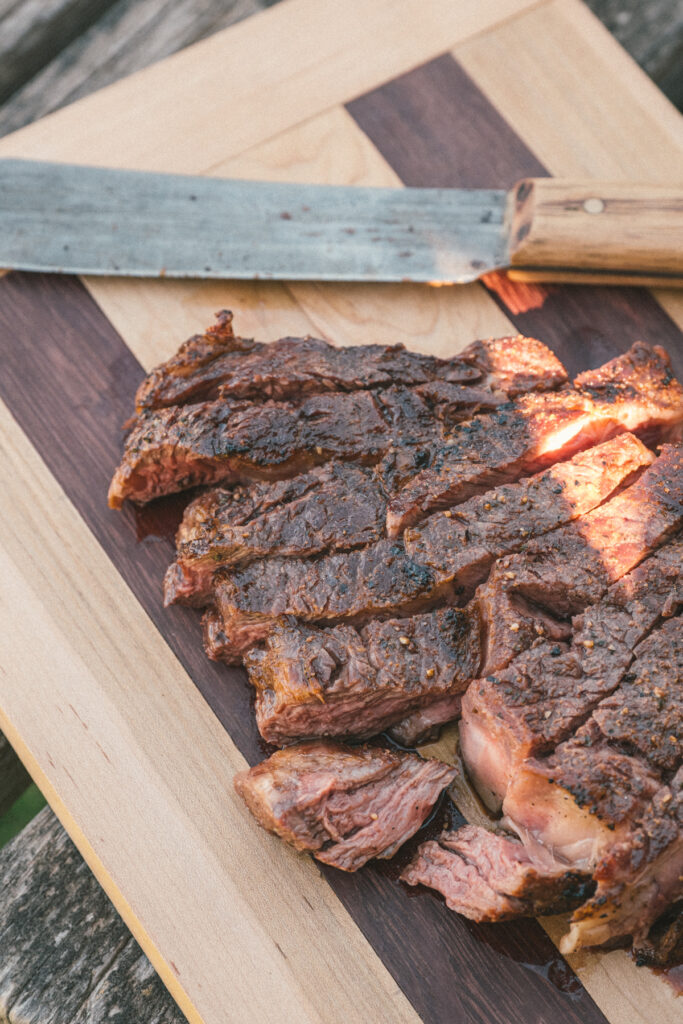
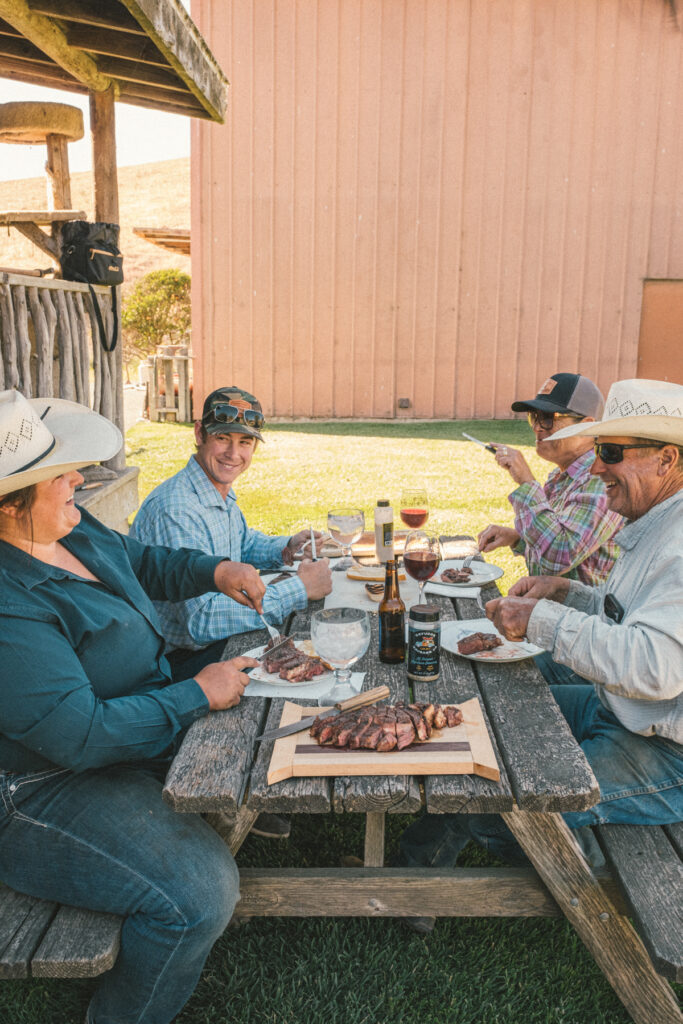
Customer Madelynn Martinez began purchasing meat from Fallon as a gesture of friendship; Madelynn and Fallon have known each other since childhood. Since then, the beef “has turned into a staple in my diet,” says Madelynn. “I incorporate the meat into my meals daily and recommend the products to everyone due to its superior quality.”
To accommodate their more than 400 head of cattle, the Molnar family leases land from Morro Bay to Cambria — each ranch accommodating anywhere from 30 to 120 calves. Last year, they purchased a 4,600-acre property north of Paso Robles. “My dad has been saving up his whole life to buy this property,” says Fallon.
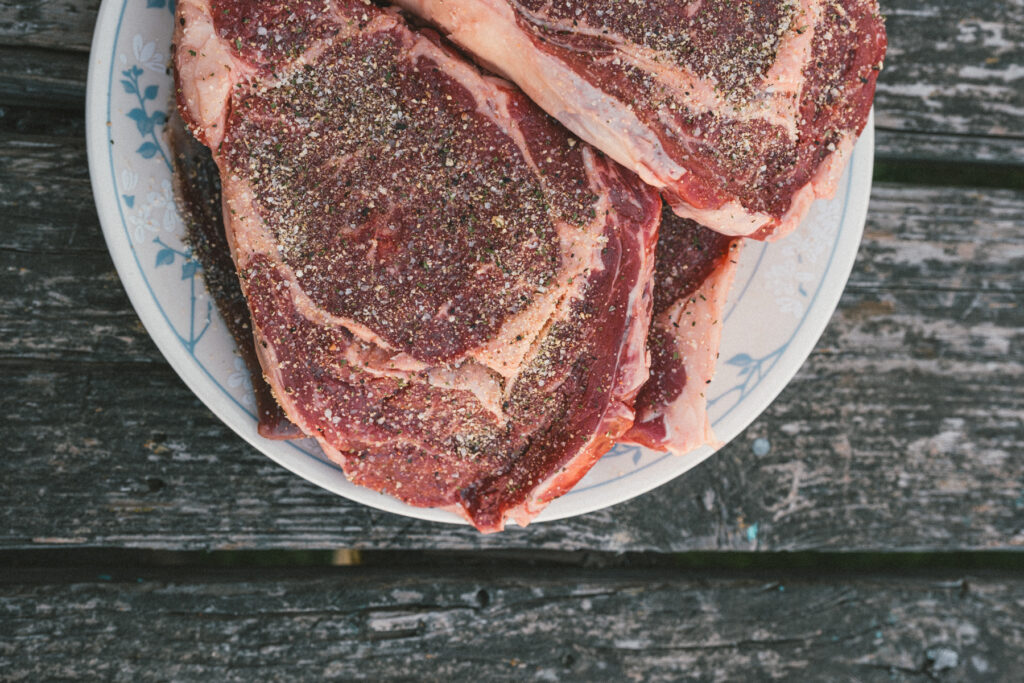
The two ranches in Cayucos and Paso Robles aren’t large enough for all the cattle, so “we actually love getting new leases. That’s one of my focuses now,” says Fallon. “There are a lot of families that have land but don’t have cattle and we like to help out where we can. Cattle benefit the grounds — we conduct regenerative grazing practices on the land. On one of the properties, we have eight different fields separated by hot wire to create temporary fences. We rotate graze the cattle. It allows us to make the most out of the land. This way, the grass has more time to grow. And you see the difference.”
It’s a callback to ancestral ways, where grazing herds would pass through, then come back, and pass through again. Rotational grazing is a natural way of keeping soil and, ultimately, the ecosystem healthy. Fallon is doubling down on “regenerative planning, placing water troughs for the wildlife, grass seeding, rotating the cows around. Because of this, there is more wildlife on the ranches than ever, and they are well-nourished and happy,” she says.
With land and food offerings like this available locally, it seems we can all be well-nourished and happy. And with Fallon’s emergence as Molnar Cattle’s leader, the business is poised to last through the modern age.
